Meet Annie, Our New Intern!
A few months ago, Tim and I were talking about how we would love to bring an intern into our shop - someone who is artistic, creative, and who wanted to learn the ins and outs of managing a workshop. Of course, I had little knowledge of how to source this unicorn and got too busy to really focus on it. Amazingly, a few weeks later I received an out-of-the-blue email from an arts student looking for just this experience... and we couldn't be more thrilled to welcome Annie, our newest intern, to our shop.  When Annie contacted me, she was mid-semester on a study abroad experience in Florence, Italy. We Skyped and emailed back and forth about the details of the role and I quickly came to appreciate her professionalism, even from far away. We agreed to meet when she returned from Florence at the end of the semester and have her tentatively start her "program" that summer.Of course, like everyone, Annie's plans in Florence were put through the wringer due to COVID. She ended up flying back to the U.S. early and finishing her semester remotely from her parent's home in D.C., which was such a disappointment, I'm sure. But, Annie has never once complained and she followed up to (delicately) see if we still wanted to consider her for the internship role. Of course, we eagerly said yes - with how crazy things had become, we desperately needed another team member anyway. So, without further delay, please: meet Annie, our wonderful intern*! Annie, I know you grew up in the D.C. area - can you tell us a bit about your background?Annie: I was born in Georgetown University Hospital in 1998 to my Manhattan chef of a mother, Karen, and my Alexandrian father, Chris. I am a native Washingtonian from Capitol Hill and pride myself in this fact since it is increasingly more and more common to come across transplants in D.C. Because of a lack of decent public schools in D.C. in the early 2000s, I attended elementary/middle school at a co-ed private Catholic school where I met 10 of my closest, lifelong friends. I moved onto high school at Georgetown Visitation where I spent a lot of time applying myself to "rigorous academics" under a Christian methodology of teaching. I was one of the only students who went on to pursue fine art as a full-time student.I knew growing up on Capitol Hill that I lived inside a bubble of economic, racial, and social privilege - one I hoped to expand out of after high school. Thankfully, I was accepted to Virginia Commonwealth University's Sculpture + Extended Media department in Richmond, Virginia where I am able to study jewelry, textiles, art history, and sculpture in a new setting with like-minded individuals.
When Annie contacted me, she was mid-semester on a study abroad experience in Florence, Italy. We Skyped and emailed back and forth about the details of the role and I quickly came to appreciate her professionalism, even from far away. We agreed to meet when she returned from Florence at the end of the semester and have her tentatively start her "program" that summer.Of course, like everyone, Annie's plans in Florence were put through the wringer due to COVID. She ended up flying back to the U.S. early and finishing her semester remotely from her parent's home in D.C., which was such a disappointment, I'm sure. But, Annie has never once complained and she followed up to (delicately) see if we still wanted to consider her for the internship role. Of course, we eagerly said yes - with how crazy things had become, we desperately needed another team member anyway. So, without further delay, please: meet Annie, our wonderful intern*! Annie, I know you grew up in the D.C. area - can you tell us a bit about your background?Annie: I was born in Georgetown University Hospital in 1998 to my Manhattan chef of a mother, Karen, and my Alexandrian father, Chris. I am a native Washingtonian from Capitol Hill and pride myself in this fact since it is increasingly more and more common to come across transplants in D.C. Because of a lack of decent public schools in D.C. in the early 2000s, I attended elementary/middle school at a co-ed private Catholic school where I met 10 of my closest, lifelong friends. I moved onto high school at Georgetown Visitation where I spent a lot of time applying myself to "rigorous academics" under a Christian methodology of teaching. I was one of the only students who went on to pursue fine art as a full-time student.I knew growing up on Capitol Hill that I lived inside a bubble of economic, racial, and social privilege - one I hoped to expand out of after high school. Thankfully, I was accepted to Virginia Commonwealth University's Sculpture + Extended Media department in Richmond, Virginia where I am able to study jewelry, textiles, art history, and sculpture in a new setting with like-minded individuals. 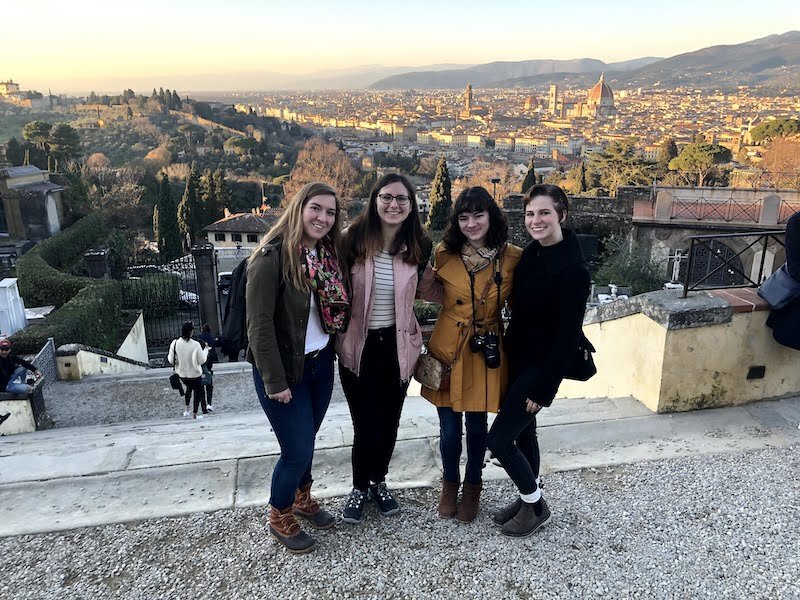 What motivated you to pursue an art degree, specifically in sculpture? Annie: The first year of college at VCU Art's is called the Foundation Year where you take classes in every type of study: space, time, surface, and drawing. I decided to attend VCU Art's for this program initially because I had no idea what path I wanted to take within fine art. I ended up deciding upon sculpture as my department a year later because of their unique undergraduate studio spaces, teachers, and flexibility in the department for personal artistic development and process. Where do you turn for inspiration in your work? Annie: I constantly find myself turning toward my own experiences of going to a private Catholic school, being a young woman, and growing up in D.C. as sources for emotional inspiration. I also attend a lot of museums in both D.C. and Richmond including the VMFA, National Museum of Women in the Arts, Freer|Sackler, Hirshhorn, National Gallery of Art, and ICA. I often bring a sketchbook with me where I sketch and pick out formal, aesthetic, and conceptual qualities I find I can incorporate into my own practice. I use my sketchbooks as a running list of ideas for works. I also really enjoy the works of Petah Coyne, Jenny Holzer, Will Cotton, Mark Tennant, Roni Horn, Rachel Whiteread, Juno Calypso, Don Hertzfeldt, Betty Thompkins, and Kara Walker.
What motivated you to pursue an art degree, specifically in sculpture? Annie: The first year of college at VCU Art's is called the Foundation Year where you take classes in every type of study: space, time, surface, and drawing. I decided to attend VCU Art's for this program initially because I had no idea what path I wanted to take within fine art. I ended up deciding upon sculpture as my department a year later because of their unique undergraduate studio spaces, teachers, and flexibility in the department for personal artistic development and process. Where do you turn for inspiration in your work? Annie: I constantly find myself turning toward my own experiences of going to a private Catholic school, being a young woman, and growing up in D.C. as sources for emotional inspiration. I also attend a lot of museums in both D.C. and Richmond including the VMFA, National Museum of Women in the Arts, Freer|Sackler, Hirshhorn, National Gallery of Art, and ICA. I often bring a sketchbook with me where I sketch and pick out formal, aesthetic, and conceptual qualities I find I can incorporate into my own practice. I use my sketchbooks as a running list of ideas for works. I also really enjoy the works of Petah Coyne, Jenny Holzer, Will Cotton, Mark Tennant, Roni Horn, Rachel Whiteread, Juno Calypso, Don Hertzfeldt, Betty Thompkins, and Kara Walker. 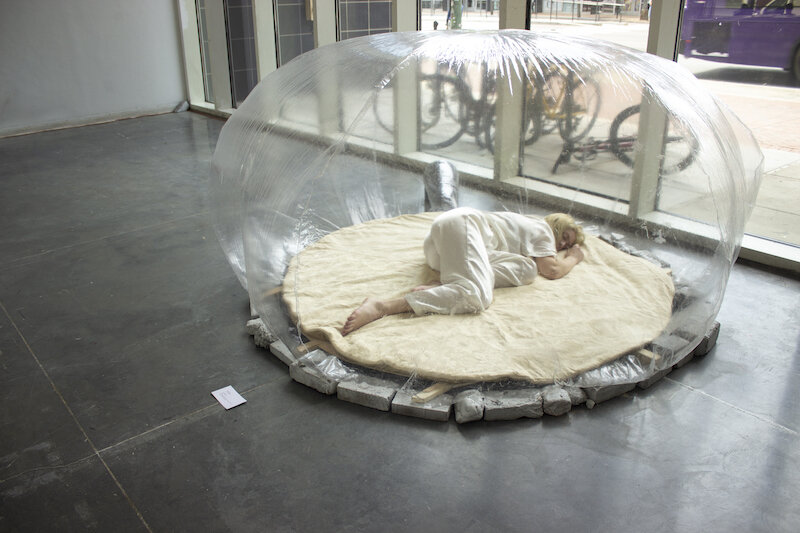
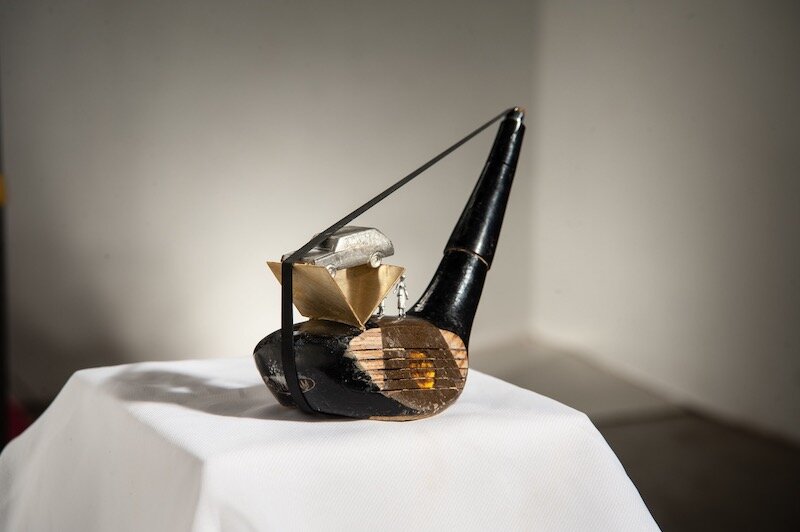
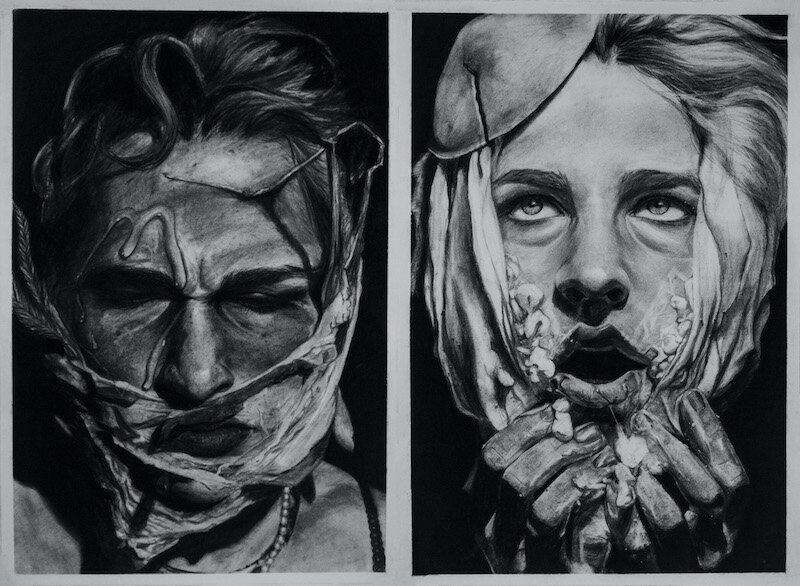 Samples of Annie's varied work
Samples of Annie's varied work
You were most recently in Italy for your semester abroad. Can you tell us a bit about why you chose Italy and the types of classes you were taking while you were there?Annie: Originally, I was very interested in going to study in France but because I was looking for craft-oriented classes, Florence, Italy made the most sense. I ended up loving Italy more than I could have imagined and was devastated to leave halfway through the semester due to COVID. Though I was able to finish my classes at home, Silkscreen printing, Renaissance Art History, Italian Food and Culture, and Intermediate Jewelry are classes that are best taught either in the classroom with the right teachers and supplies or in the city with so much history and culture as a driving force. You're our very first official "intern" - what motivated you to work with a small business like ours?Annie: I was very interested in working as an intern for a company with a creative focus. I really enjoy hands on making but I also like working with others and having goals/deadlines to meet. Currently, I am trying to figure out what I enjoy best as a personal career and what I enjoy best as a formal career. I'm hoping that by working for Alx&Co. this summer I am able to make a distinction between the two. I am drawn to a small business model that is local to me that appreciates their clients, employees, work, and is aware of their environmental and economic impact. Alx&Co. has all of these and more and I am so grateful to have the opportunity to work for them during this strange time. What is a common misconception about art school/sculpture work that you see a lot?Annie: Having a slightly more unique area of study, most people do not know what sculpture entails. Immediately, most think of traditional sculpture like marble carving or ceramic figure building which is not specifically taught at my school. This traditional way of making is a special skill usually taught in an artist-apprentice workshop because of its level of specificity and long learning curve. At VCU, Sculpture + Extended Media encompasses anything: soundscapes, animation, video work, instillations, poetry, group experiences, etc...Another misconception about art school, that I only recently realized, is that most people believe that those in art school will, 1. work as an artist in the future, and 2. work as an independent freelance artist under their undergraduate department. I have come to find out that art school is kind of a catch-all for those with hyper specific focuses that use college as a place to learn, develop, and move on. I have met people who would like to be independent artists but also those who want to be underwater welders, bakers, set designers, recycling ambassadors, muralists, and many others. 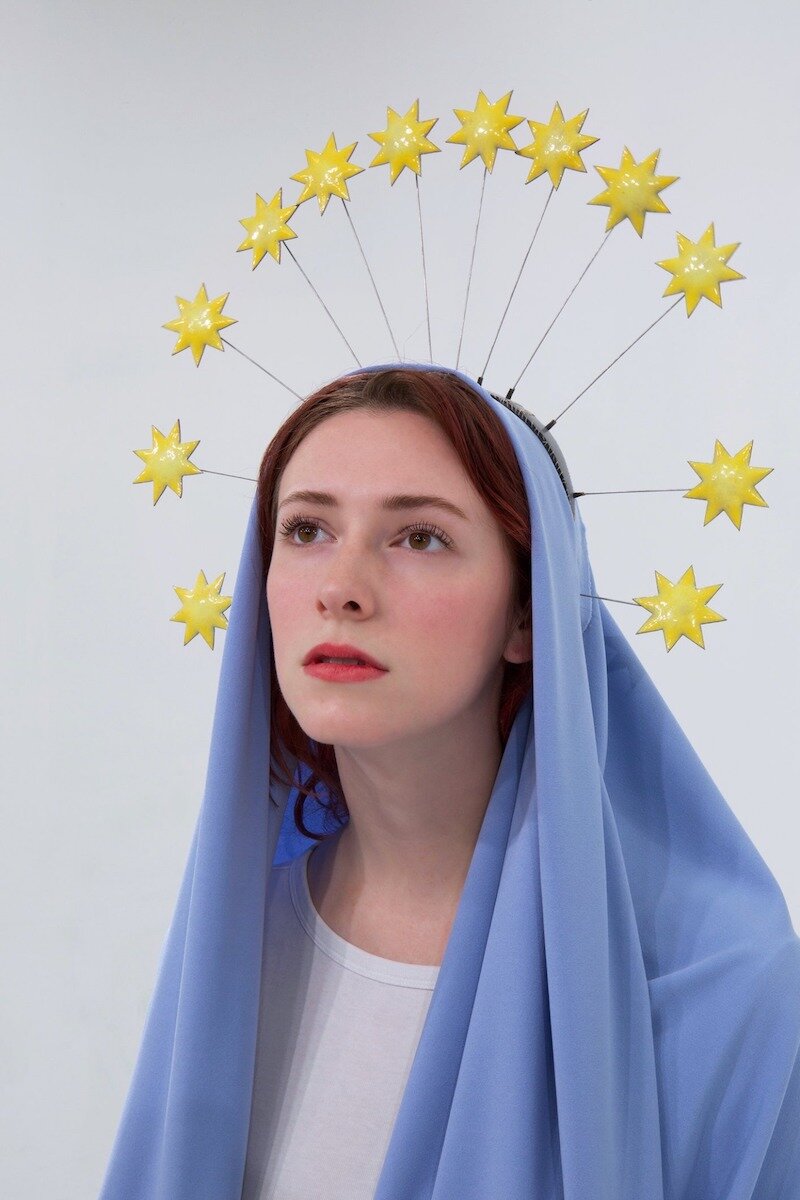
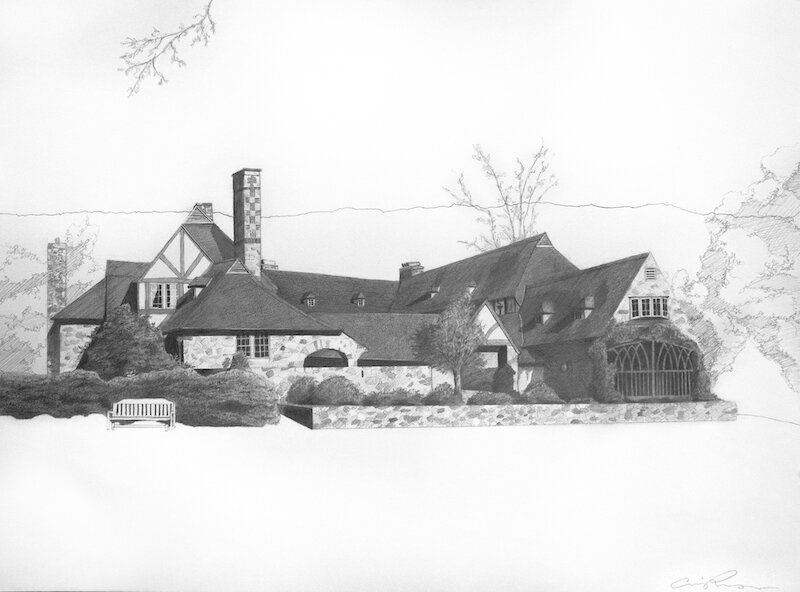 More samples of Annie's work
More samples of Annie's work
Realizing that this is a difficult question to answer right now, but how do you see yourself utilizing your degree once you graduate?Annie: To be quite honest, I don't think I will directly use my sculpture degree when I graduate (hopefully on time) in Spring 2021. I think from my time at school, I have realized what I do and do not enjoy about working as an artist and what that means for my future. I have interests in jewelry, museum studies, baking, and sustainable product design so I hope to find myself trying one or more of these fields for size after I obtain my degree. I do intend on utilizing what I learned from college: critical thinking, an open mind, progressive thought, active learning, etc. I have learned so much from others about the way other people think and live and how they view art and the art world. Thank you, Annie! We are so pleased to have you here. *Good to know: we don't believe in unpaid internships, so really Annie is our newest employee... but we're focusing on giving her a ton of hands-on experience while she's here. She does everything from practicing soldering to updating our multitudes of project trackers.
